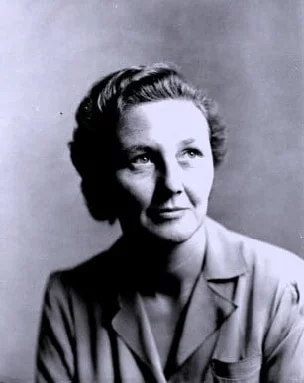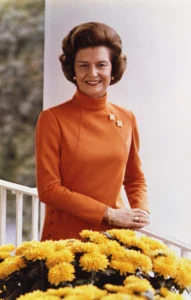Celebrating Famous Women in Recovery
Each March, we celebrate Women’s History Month: an annual observance of the ways in which women have positively impacted society. In addition to fighting for legal rights, demanding equality and joining male-dominated fields, women have also made an incredible difference in the realm of recovery. Today, we would like to discuss two notable women from America’s history of mental health and addiction treatment.
From the Early Days of AA: Marty Mann
In 1939, when she was 35 years old, Marty Mann attended her first Alcoholics Anonymous meeting. While she wasn’t the first ever woman to join AA – that was “Lil” – she was the first woman to achieve continuous sobriety from the program.
Mann was born in Chicago to an upper-middle-class family in 1904. She had a privileged upbringing as a privately schooled debutante. During her time as a socialite, she was well-known for her ability to drink excessively without apparent effect – today, we understand this as a potential warning sign of alcoholism.
While Mann initially thrived personally and professionally, her alcoholism spiraled out of control, resulting in at least one known suicide attempt. She then sought treatment.
Mann received a copy of The Big Book from her therapist, who convinced her to attend her first meeting. This is where she would meet her sponsor, the famous Bill W. – all during a time when there were only two chapters of AA in the entire world.
As she gained more time in recovery, Mann found her calling. She sought to eliminate the stigma surrounding substance abuse and promote the “disease model” of addiction. For this reason, she was instrumental in establishing our current understanding of this diagnosis: it is a disease, not a moral failing.
Mann helped to found the Yale School of Alcoholic Studies, which is now at Rutgers. She also organized what has since become the NCADD: the National Council on Alcoholism and Drug Dependence. She also penned a chapter for the 2nd through 4th editions of The Big Book, titled “Women Suffer Too.”
Marty Mann was an incredibly influential woman during a time when addiction was taboo.
First Lady Betty Ford
Almost everyone in recovery has heard the story of Betty Ford. She was the wife of Gerald Ford and served as the First Lady of the United States from 1974 through 1977. During her husband’s term, Ford maintained high approval ratings. She strongly supported several political causes, including the Equal Rights Amendment and the women’s rights movement. After her time in the spotlight, Ford became an activist for a cause that affected her personally: the disease of addiction.
In the early 1960s, Ford was prescribed opioid painkillers for a pinched nerve. The combination of these medications and her alcoholism spiraled, and others grew concerned. The Ford family staged an intervention for the former First Lady in 1978, which resulted in her admission to a treatment program.
In 1982, a sober Betty Ford founded the Betty Ford Clinic in Rancho Mirage, California. Today, this institution is known as the Betty Ford Center: one of the largest treatment centers in the country. She continued to champion for recovery and wrote two books on the subject while serving on the board of directors.
Years later, First Lady Barbara Bush would write that Ford “transformed her pain into something great for the common good. Because she suffered, there will be more healing. Because of her grief, there will be more joy.”
Today: Hope for Women Struggling with Addiction
Fast forward to today. In 2021, we have dealt with new struggles and obstacles our ancestors could not have foreseen. A global pandemic, political unrest and other stressors have led to widespread feelings of anxiety and overwhelm for women across the country. However, there is a bright side.
Research shows that the pandemic has made behavioral healthcare more accessible than ever before. As centers adapt, offering telehealth and outpatient options, you can rest assured that support is one click or call away. We are more connected now than ever before.
Additionally, a shift in gender roles has brought about new hope for women who need treatment. While in Mann’s day, women were expected to care for the household and hide their distress, women today have achieved a greater degree of independence. It is less likely that a woman will fail to receive treatment because of childcare or responsibilities in the home than in years past. It is more acceptable to ask for help.
Thanks to women like Marty Mann and Betty Ford, we have a better understanding of the disease of addiction, improved access to care and hope for a brighter future. We hope that these stories uplift you and encourage you to make a positive change wherever you can.
About Cumberland Heights
If you are struggling with drugs or alcohol, you are not alone. Cumberland Heights is an addiction treatment center that provides comprehensive care to women throughout the state of Tennessee. For more information about our programming, please contact us today.










